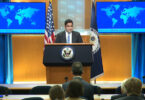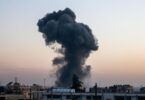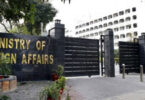SRINAGAR (Monitoring Desk): Military lockdown and restrictions continue on consecutive 231st day today in occupied Kashmir following the August 5 Indian illegal decision to abrogate special status of the held valley.
According to Kashmir Media Service, restrictions under Section 144 remain enforced and residents continue to suffer immensely due to suspension of internet across all platforms, SMS and prepaid cellular services.
As a mark of silent protest, people in the valley continue to keep their shops closed except for a brief period in the morning and evening and stay away from schools and offices. Public transport is also unavailable.
The clampdown has not only affected inter-district road connectivity drastically but has also thrown great challenges for old city residents due to the shutting of factories, industries, and other workplaces.
The residents of Kashmir valley are facing severe hardships due to shortage of essential commodities due to continued blockade and fast approaching winter.
More than 8 million Kashmiris are facing media blackout and Indian miseries. Almost 894 children have been martyred in occupied Kashmir so far, while more than 177 thousand have been orphaned.
The occupation authorities continue to place almost all Hurriyat leaders including Syed Ali Gilani, Mirwaiz Umar Farooq and Muhammad Ashraf Sehrai under house arrest or in jails. Over 11,000 Kashmiris including resistance leaders, political activists and youth have been arrested.
On October 31, India formally divided the state of Jammu and Kashmir in to two new federally-administered territories as per the constitutional changes approved by the Indian parliament on August 5.
According to the new arrangement, the occupied Kashmir is divided into two union territories: Jammu and Kashmir and Ladakh, which borders China. The two new union territories are now ruled directly from the capital Delhi. As per Indian constitution, union territories have far less autonomy from the federal government than states do.
Even the international media, on several occasions, has highlighted the deteriorating situation in Kashmir resulting from the persistent curfew and lockdown.
On January 10, Indian Supreme Court ruled the communications blackout in occupied Kashmir as unconstitutional and ordered the government to review all restrictions, including suspension of internet service, in occupied Kashmir within a week.
The court ruled that shutting down internet in occupied Kashmir was unconstitutional.
The Supreme Court also directed the Indian government to make public all orders imposing a lockdown in Kashmir in August after the constitution’s Article 370 granting Kashmir special status was revoked.
An indefinite suspension of the internet is a violation of the country’s telecoms rules, the court said, ordering authorities in occupied Kashmir to review all curbs in a week’s time.






